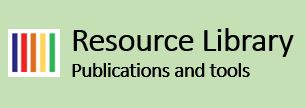30/03/2018 - Local communities taking lead in improving their living environment
Unmanaged solid waste, drainage and water quality expose the most vulnerable people in this urban area to environmental health risks and exacerbate disaster risks. The community, many of whom are descendants of the former leprosy sanatorium in the village, were an isolated and marginalized community that has grown in the past 30 years, as rural economic migrants have settled. Located at the lower portion of the Cebu city water catchment, a number of critical compounding issues affect the community.
I am always inspired by the flexibility, you might even want to call it resiliency, of communities in the developing world. Problems and solutions go hand in hand: when a house gets flooded due to heavy rain, elevate it and build it on poles. While all the waterways are fully blocked by solid waste and plastic, residents do have very clean houses. Kids are playing in half-open sewers but judging from the smiles on their faces you would think that they just received a new Lego present. It is painfully ironic that these people live in a tropical paradise where the sun is shining and mangos and papayas grow naturally throughout the village. However, when rain starts to fall, this ‘paradise’ can quickly turn into a nightmare whereby within 30 minutes dozens of houses get flooded, solid waste from upstream gets deposited into the village and the simple sewer system overflows onto the street and into the houses. To make thing worse: the wells for drinking water are contaminated and a central drinking water system is not in place. Also, a changing climate is ensuring longer periods of drought and heat, while at the same time more intense rain during the wet season is predicted.
With these challenges in mind we were welcomed by a community alliance of purok (sub-village) leaders, the Sacred Heart Chaplaincy and Urban Poor groups with a local lunch in the main community building.
This was followed by a presentation on the work that was conducted to strengthen the resilience of this community. A comprehensive assessment was carried out by Partners for Resilience alliance member Cordaid and the Provincial Disaster Management Office (PDMO) together with the community representatives. This was done to support a strong community driven response, to tackling risks while empowering local actors, to address:
- Health and natural hazard disaster preparedness plans and systems: at community level in cooperation with key stakeholders
- Water management and health risk reduction: drainage, through deep well and solid waste management
- Environmental improvements: to protect water and health and reduce impact of hazards
- Alternative livelihoods and community enterprise development
- Policy advocacy at village, municipal, provincial level
- In alignment with the municipal and city urban development master plan
I was truly impressed by the strong community ties, collaboration, and in-depth work that was carried out. The purok-leaders went door to door in this community of nearly 10,000 people, asking the residents on their needs and how improvements can take place – public engagement in its essence. Speaking with the purok leaders and the barangay (district) representative it became clear to me that municipal and provincial funds are available in the Philippines. This community participation is strengthening their capacity to engage in a meaningful conversation with multiple stakeholders.
During the presentation there was a touching moment whereby someone said that they are part of the problem (referring to the solid waste clogging up the waterways) and that they also want to be part of the solution. A great example of the passion and enthusiasm of people to change behavior and work towards a better future. It was good to see that through working with the representatives, the community is able to identify their needs and aspirations in a comprehensive manner. I have always learned to bring options and solutions to the table – which is exactly what this community is doing! With their needs assessment and plan they are already engaged with the authorities to use local funds and resources to build a better future for themselves and their children.
Author: Maren Striker, Global Coordinator Partners for Resilience. Photo: Maren Striker





